Health and Wellbeing includes the provision of accessible information about emotional support, coping with side effects, financial advice, getting back to work and making healthy lifestyle choices. This support is available to patients and their families and carers before, during and after cancer treatment.
Use our Health and Wellbeing checklist to help you and your family/carers identify what you might need to know, and help you keep track of information you have already been given.
Our Virtual Health and Wellbeing Patient Resource Pack provides information and contact details for physical, emotional and psychological support available across Surrey and Sussex.
We have also produced a guide to the cancer professionals you may meet during your care. People I may need explains what those health professionals do and how they can support you.
Health and Wellbeing Top Tip Videos
We have produced a range of health and wellbeing videos to provide top tips for cancer patients across the region.
The short, two-to-three minute films feature therapists, dieticians and oncologists from across the cancer alliance’s footprint. The first of the videos can be found below and we will be adding to this over the coming weeks.
Our thanks to: The Fountain Centre based at Royal Surrey NHS Foundation Trust, Brighter Outlook based in Brighton and Hove, Phyllis Tuckwell in Farnham, and the Macmillan centre at the Queen Victoria NHS Foundation Trust in East Grinstead.
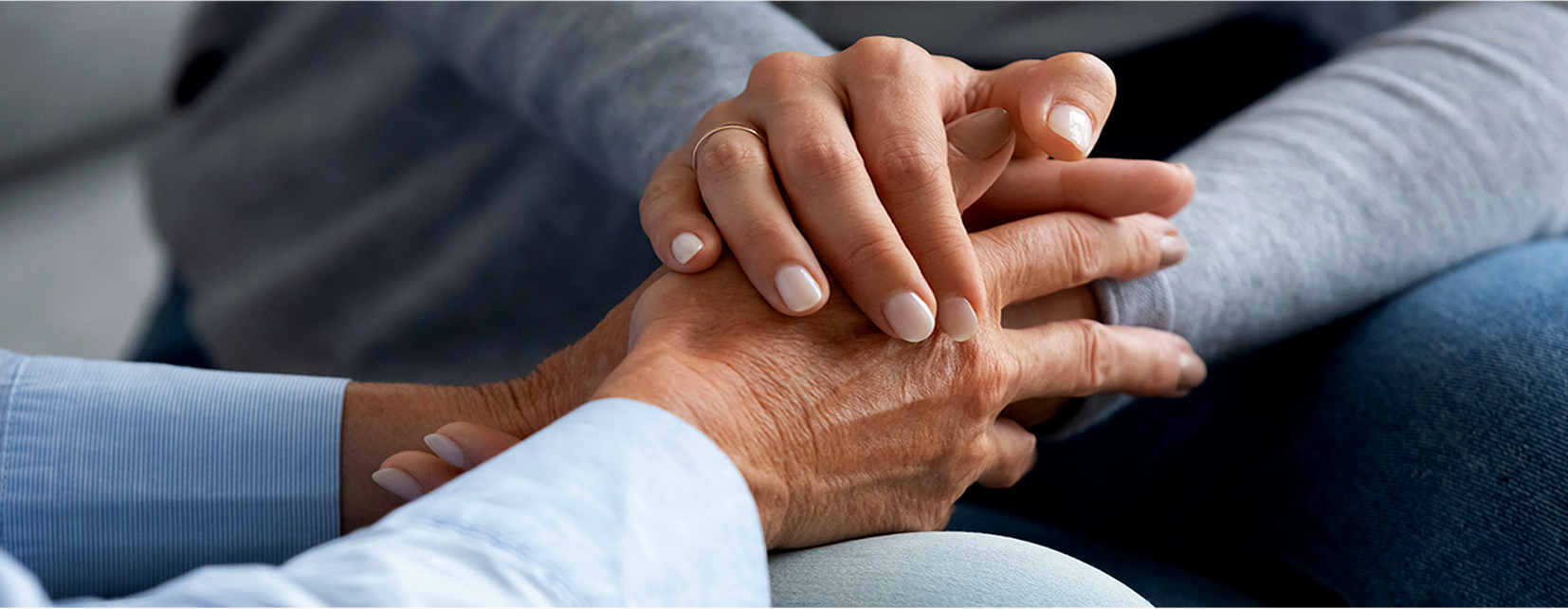
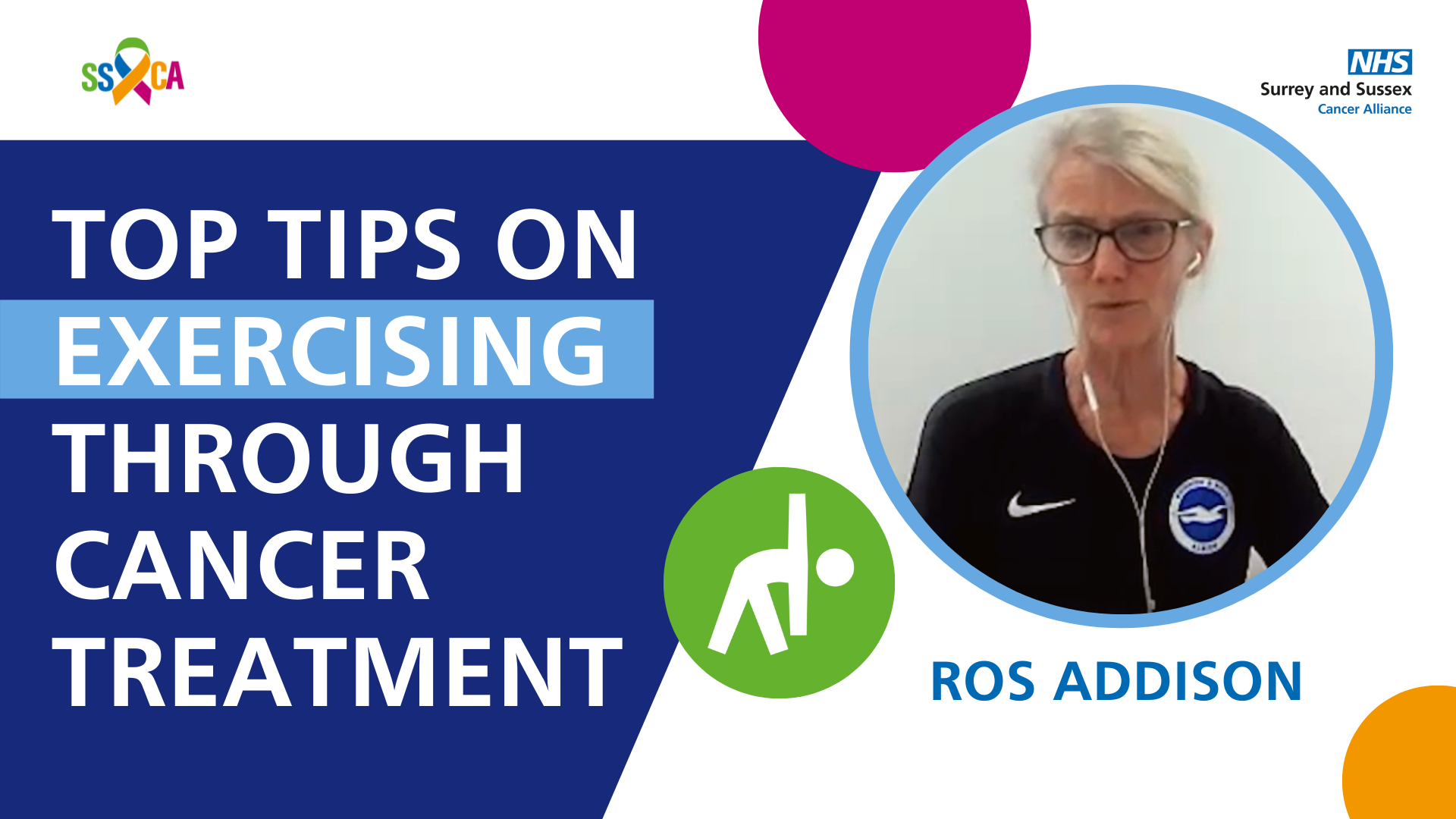
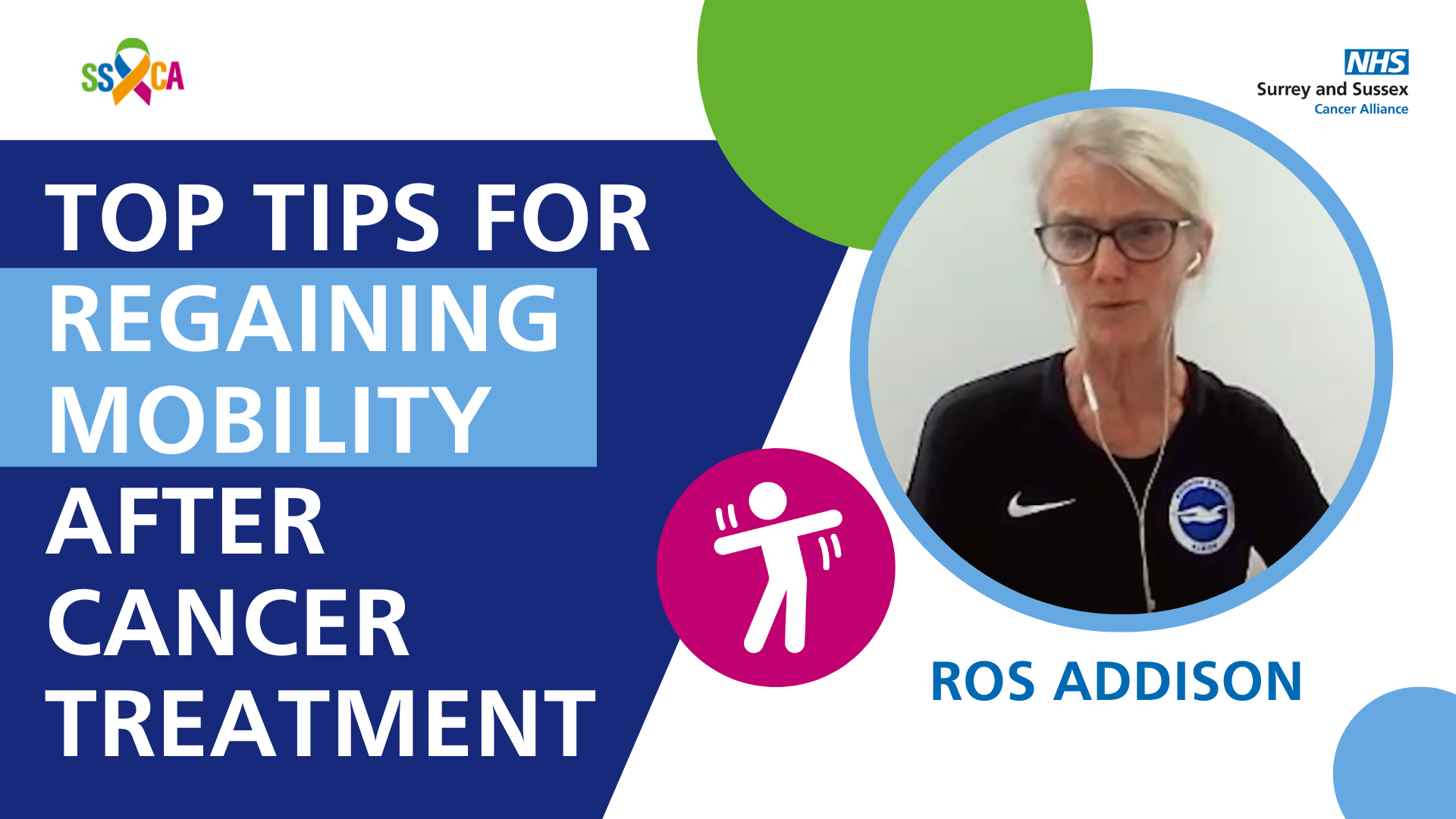
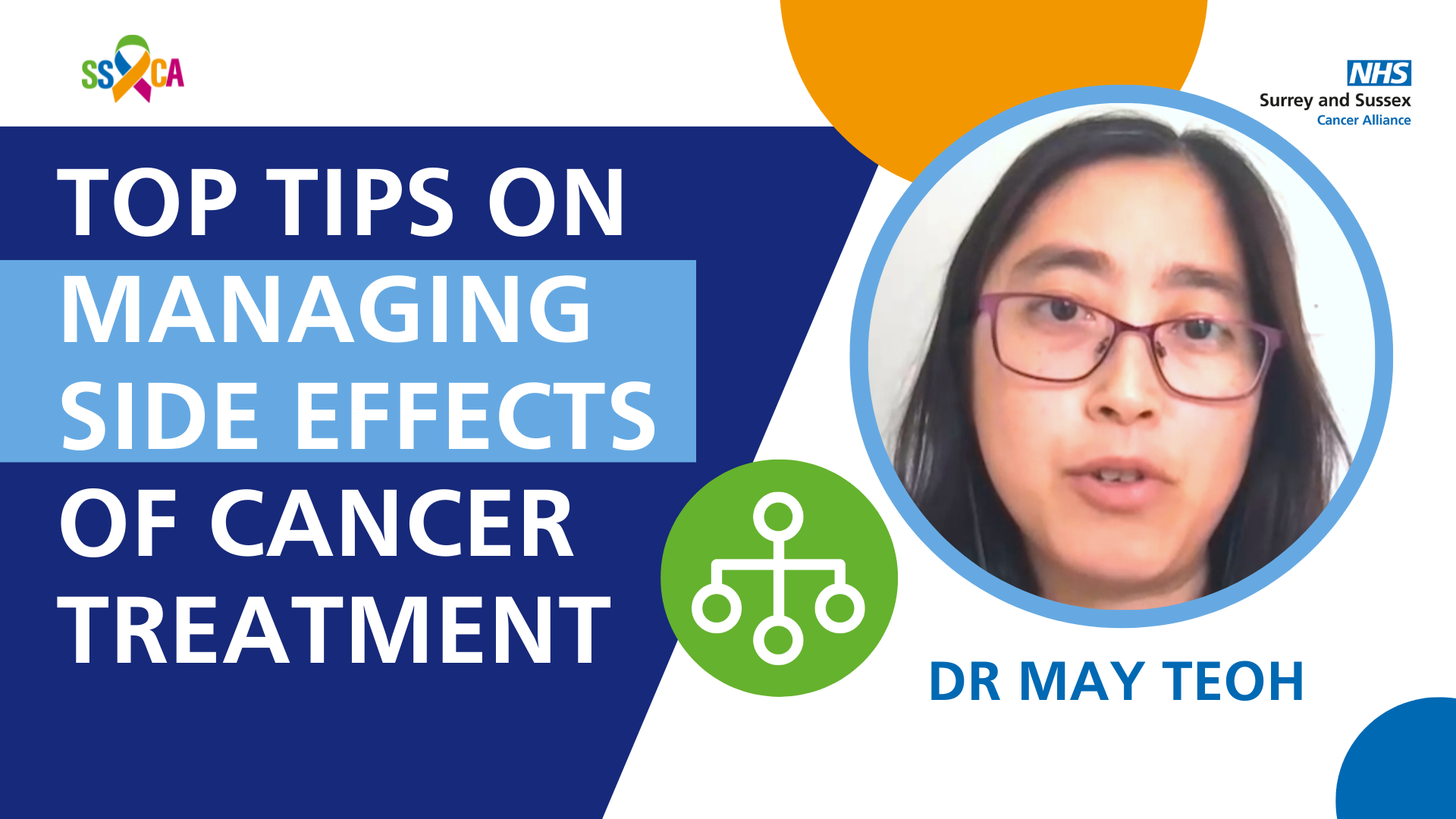
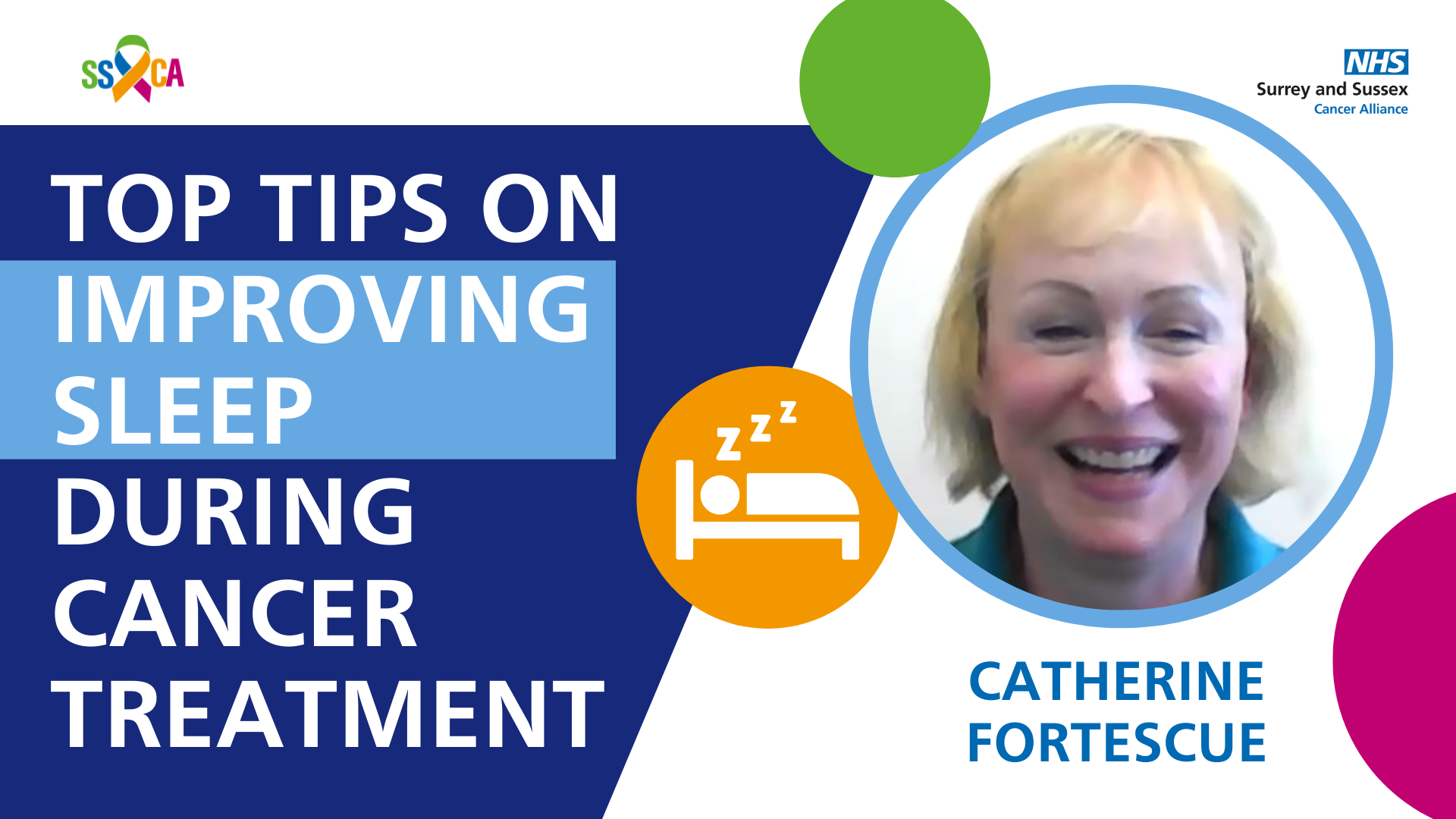
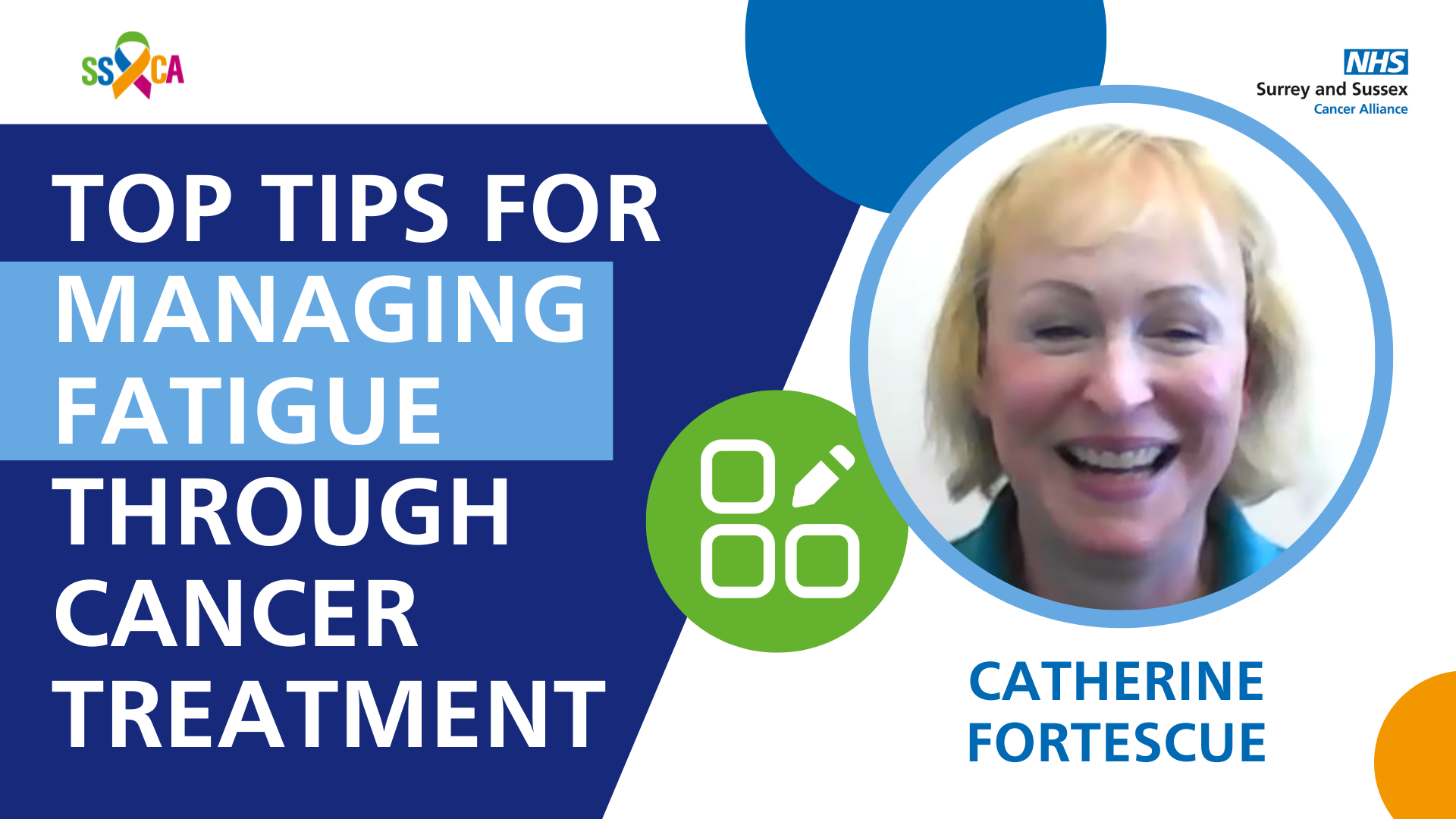
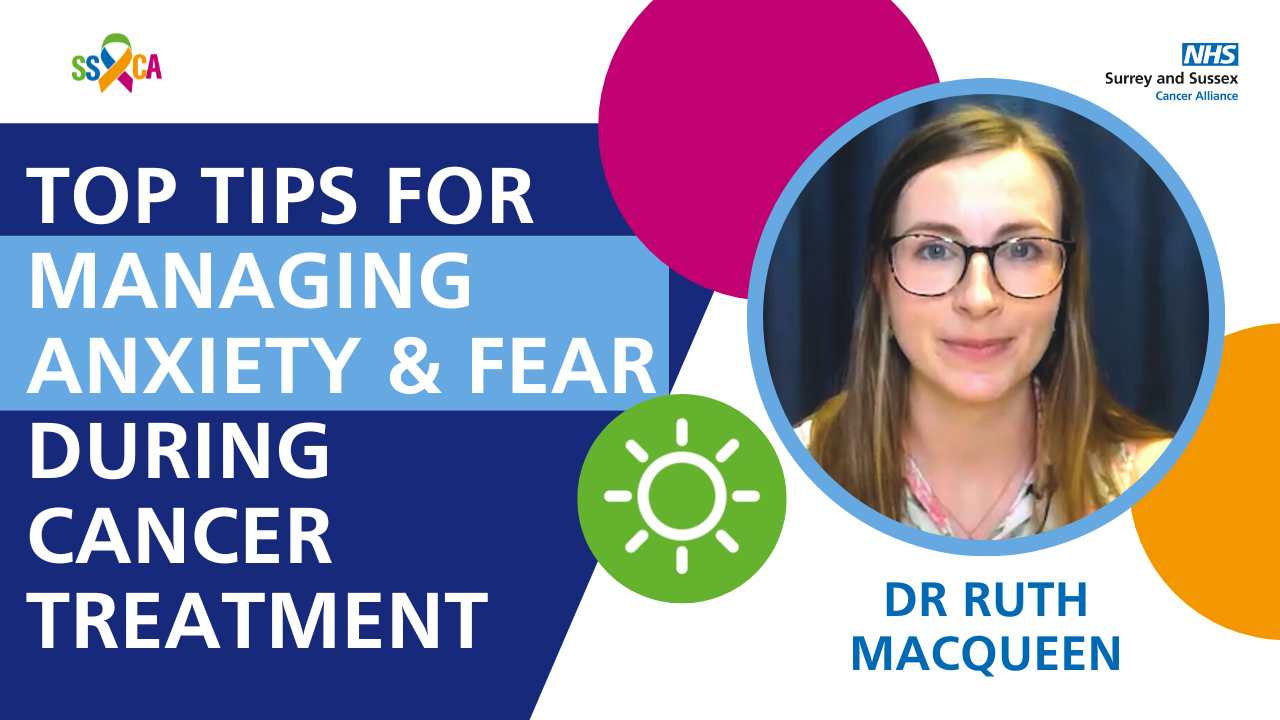
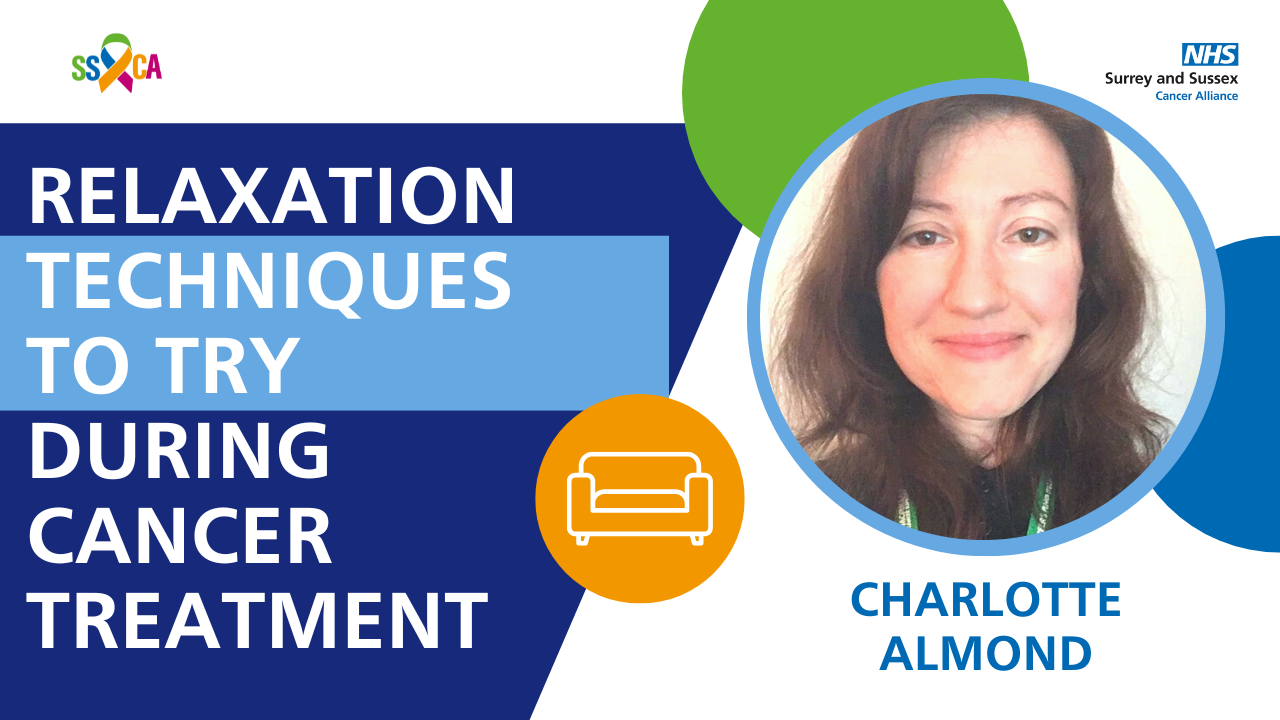
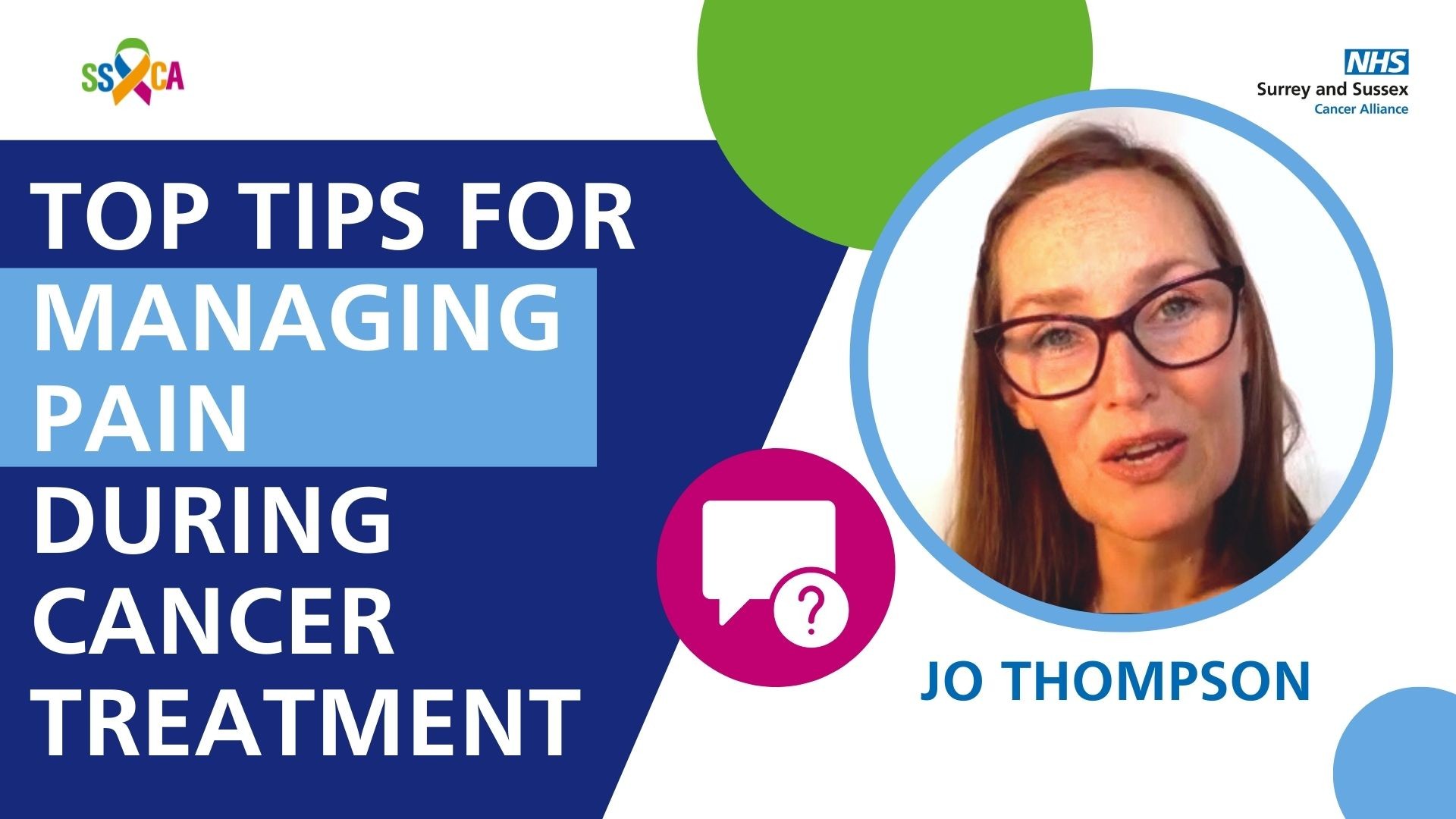

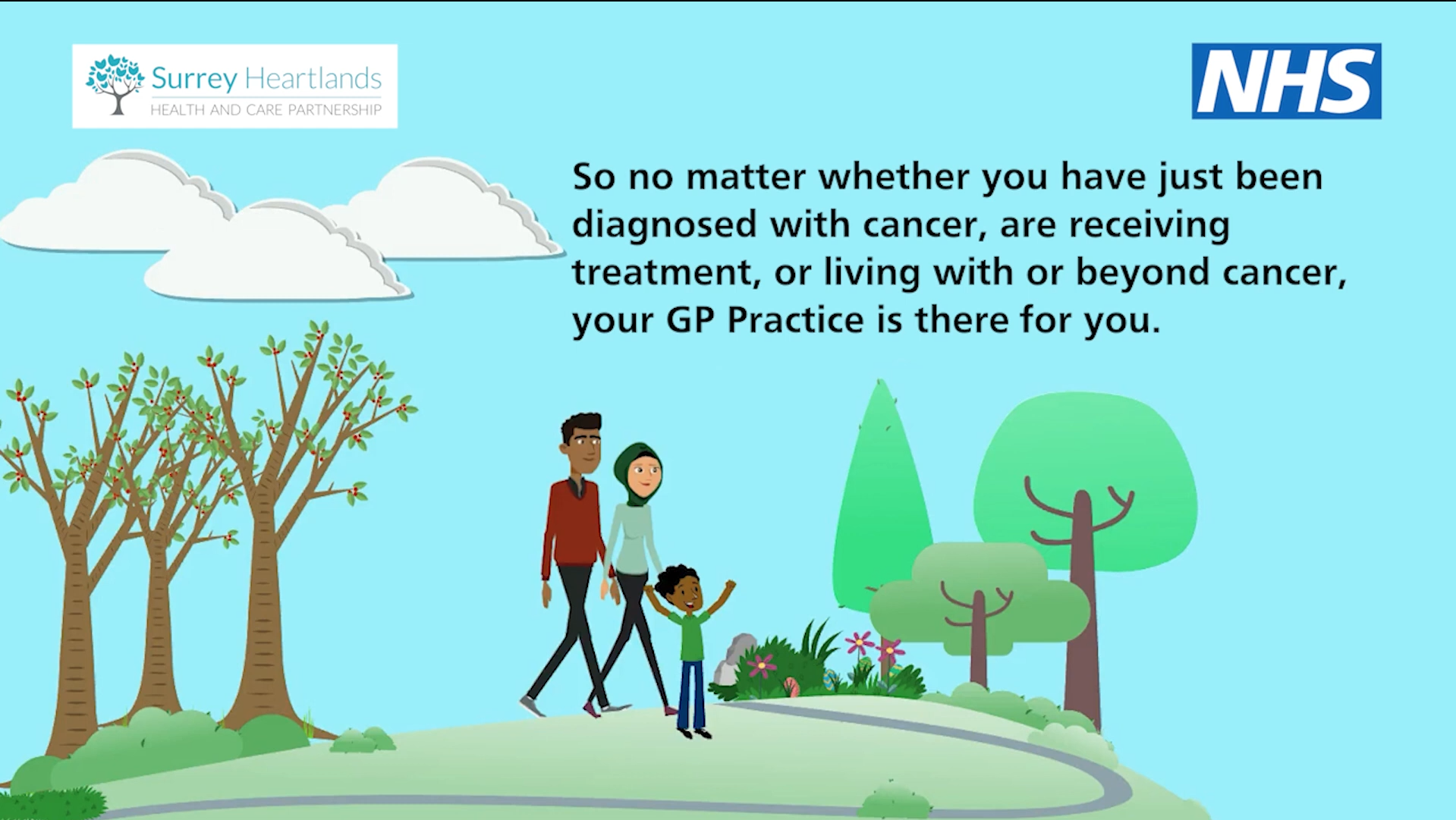
 Find
Find 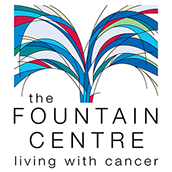 The Fountain Centre
The Fountain Centre